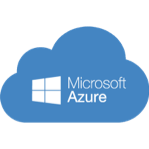-

How Much it ll cost to build an app like
- Cost to develop an Uber Tow Truck App
- Cost to develop a Pest Control App
- Cost To Develop a Handyman App Like Uber
- Cost To Develop a Doctor Appointment Booking App
- Cost To Develop An App Like MoodBites
- Cost To Develop An App Like SkipTheDishes
- Cost To Develop An App Like Q Chat
- Cost To Develop An App Like TickTick
- Cost To Develop An App Like ContractBook
- Cost To Develop An App Like Utter
-

How Much it ll cost to build an app like
- Cost to develop a Video Editing Mobile App like Magisto
- Cost to develop a Live Video Streaming App like Twitch
- Cost to develop an app like Home Workout- No equipment
- Cost to develop a Sports News app like theScore
- Cost to develop an Application like Reddit
- Cost to develop a Sports News app like theScore
- Cost to develop an E-learning platform like Udemy
- Cost to develop an On Demand Doctor App like Heal App
*

These are the Top 10 Tips for Personal Cyber Security
1. Keep your software up-to-date
Ransomware attacks were a major threat to both consumers and businesses in 2017, as we can see from the above statistics. Patching obsolete software and operating systems is one of the best cyber security tips to prevent ransomware. This will remove the critical vulnerabilities hackers use to gain access to your devices. These are some quick tips to help you get started.
- Turn on automatic system updates for your device
- Make sure that your web browser automatically receives security updates
- Keep your web browser plugins like Flash, Java, etc. Keep your web browser plugins like Flash, Java, etc. updated
Visit our blog to learn more about patch management best practices!
2. Firewall & Anti-Virus Protection
Anti-virus (AV), protection software is the best way to protect yourself from malicious attacks. Anti-virus software prevents malware and other malicious virus from infecting your device and compromising data. Only use anti-virus software that is trusted and run only one tool.
A firewall is essential for protecting your data from malicious attacks. Firewalls are used to protect your data from malicious attacks, such as viruses and hackers. Windows OS X and Mac OS X come with their own firewalls, the appropriately named Windows Firewall or Mac Firewall. To prevent network attacks, your router should have a firewall.
3. Use strong passwords and a password management tool
Strong passwords are crucial for online security, as you’ve likely heard. Passwords are crucial in keeping hackers from accessing your data. The 2017 National Institute of Standards and Technology’s new password policy framework (NIST), should be considered:
- You should drop the complex mix of symbols and numbers, which can be confusing. You should instead choose something simpler, with at least 8 characters and a maximum length 64 characters.
- Use different passwords.
- Passwords should include at least one lowercase, one uppercase, and four symbols, but not the following __.
- Make sure it is simple to remember. Never leave any password hint out in public or make it available to hackers.
- If you forget your password, reset it. As a refresher, you can change your password once a year.
A password vault or password management tool can make managing your passwords easier. LastPass FREE can be a great tool. LastPass is free and offers a $2/month subscription with many advanced password features.
4. Two-Factor authentication or multi-factor authentication
Multi-factor, or two-factor authentication, is an additional layer of security to the traditional password method of online identity. You would normally use a username and password to log in without two-factor authentication. Two-factor authentication would require you to enter an additional authentication method, such as a Personal Identification Code or another password, or even your fingerprint. Multi-factor authentication will prompt you to enter additional authentication methods in addition to your username and password.
NIST recommends that SMS deliveries should not be used for two-factor authentication. This is because malware could be used to hack mobile phones and compromise data.
5. Phishing scams: Be very cautious of flyers, emails and phone calls.
Recently, we blogged about phishing schemes that are more dangerous than ever this yea. The attacker pretends to be someone or something in order to trick the recipient into giving their credentials or clicking malicious links. This can often lead to ransomware attacks. Phishing attempts account for 90% of ransomware attacks.
Here are some important cyber security tips about phishing schemes:
- Bottom line: Don’t open emails from people you don’t know
- You can find out which links are safe by hovering over the link.
- You should be suspicious of emails you receive in general. Check the source and check for grammatical errors.
- Friends who have been infected can also be infected and may link to malicious links. So, be extra careful!
6. Protect your sensitive personal identifiable information (PII).
Personal Identifiable Information is information that can be used to locate or identify an individual. PII can include information such as name and address, phone numbers, date of birth, IP address, location details or other digital or physical identity data. Companies should protect your credit card information if they adhere to the DSS standards.
Social media is a new world where information is constantly changing. You should be careful about what you post online. It is best to only share the most basic information about yourself on social networks. You might consider reviewing your privacy settings on all social media accounts, especially Facebook. Your risk of security breaches will be greatly increased if you add your birthdate, home address, and any other PII information. Hackers can use this information to their advantage!
7. Use Your Mobile Devices Securely
McAfee Labs says that your mobile device can now be a target for more than 1.5 million mobile malware incidents. Here are some quick tips for mobile device security:
-
- Make a difficult mobile passcode – not your birthdate or bank PIN
- Install Apps From Trusted Sources
- Keep your device updated – Hackers use vulnerabilities in unpatched older operating systems
- Do not send sensitive information or PII via text message or email.
- To prevent theft or loss, use the Android Device Management or Leverage Locate my iPhone
- Regular mobile backups can be done using iCloud, or Enabling Backup & Sync From Android
8. Keep your data backed up regularly
It is crucial to regularly back up your data for online security. A 3-2-1 backup rule is a standard rule that top IT and security professionals follow. You will keep three copies (local, external hard drives and cloud storage) of your data.
Ransomware and malware can cause data loss. To restore your data, you must first wipe your system and then restore from a recent backup.
9. Do not use public Wi-Fi
Use a Virtual Private Network (VPN) to avoid using public Wi-Fi. Using VPN software encrypts all traffic between your device (and the VPN server). It’s now much harder for cybercriminals to gain access to your data. If you do not have a VPN, you can use your cell network to secure your data.
For any changes, you should regularly review your online accounts & credit reports
Consumers need to be vigilant about their online credit reports and accounts, especially after the recent Equifax hack. Credit freezes are the best way to safeguard your credit information from cybercriminals. It allows you to lock your credit card and create a personal identification number (PIN), which you can only know. This PIN can be used to apply for credit.

Author
Our Partners




WhatsApp us


